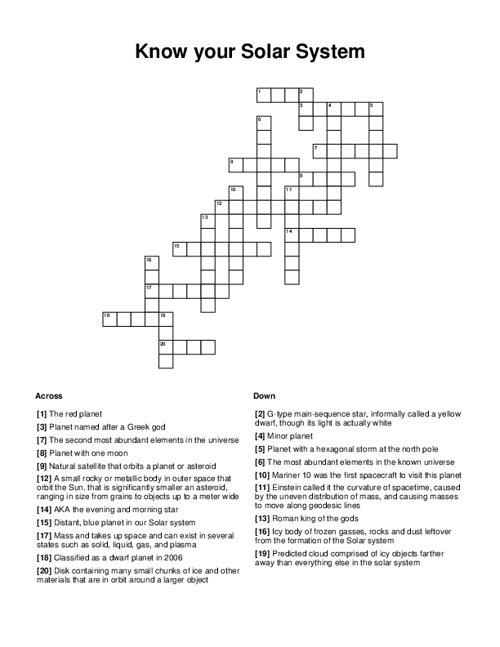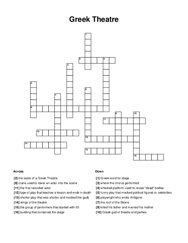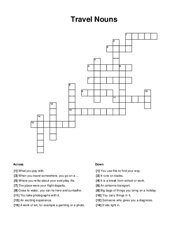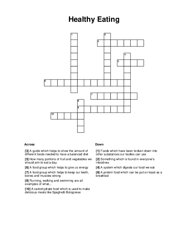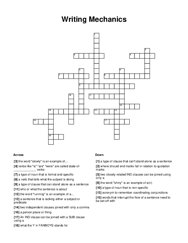Know your Solar System Crossword Puzzle
QUESTIONS LIST: comet: icy body of frozen gasses, rocks and dust leftover from the formation of the solar system, asteroid: minor planet, hydrogen: the most abundant elements in the known universe, helium: the second most abundant elements in the universe, mercury: mariner 10 was the first spacecraft to visit this planet, venus: aka the evening and morning star, neptune: distant, blue planet in our solar system , earth: planet with one moon, mars: the red planet, jupiter: roman king of the gods, saturn: planet with a hexagonal storm at the north pole, uranus: planet named after a greek god, pluto: classified as a dwarf planet in 2006, oort: predicted cloud comprised of icy objects farther away than everything else in the solar system, moon: natural satellite that orbits a planet or asteroid, sun: g-type main-sequence star, informally called a yellow dwarf, though its light is actually white, meteoroid: a small rocky or metallic body in outer space that orbit the sun. that is significantly smaller an asteroid, ranging in size from grains to objects up to a meter wide, ring: disk containing many small chunks of ice and other materials that are in orbit around a larger object, gravity: einstein called it the curvature of spacetime, caused by the uneven distribution of mass, and causing masses to move along geodesic lines, matter: mass and takes up space and can exist in several states such as solid, liquid, gas, and plasma
